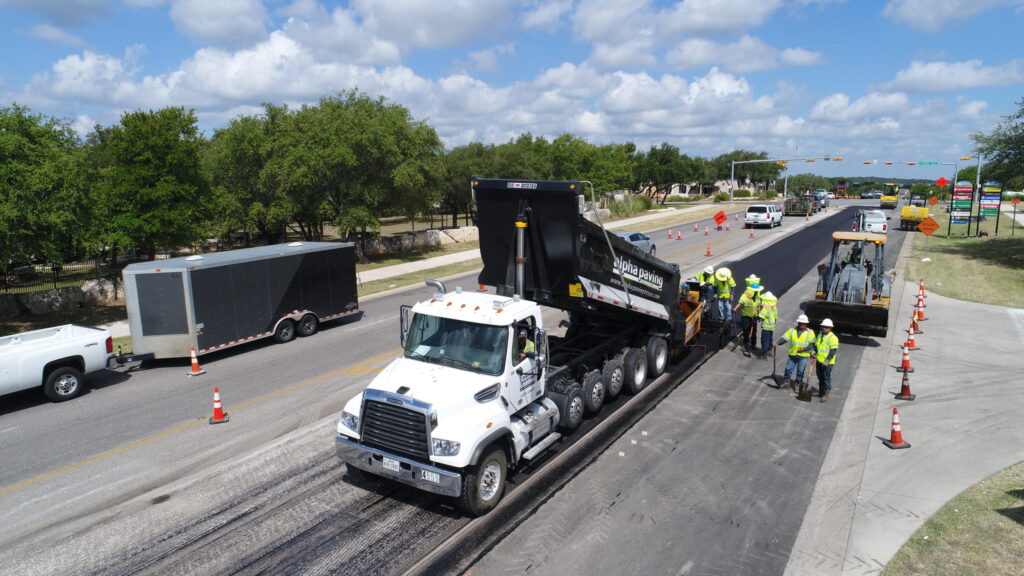
All asphalt mixes contain asphalt cement, sand and stone, so many people are surprised to learn that the basic components can be combined to make different types of asphalt pavement mixes. The types are broadly categorized as hot mix, cold mix or warm mix. Each type of mix has its advantages and disadvantages as well as some significant differences.
Asphalt Paving Mixes – Hot, Warm & Cold
Hot Mix
Hot mix asphalt is the type that is used the most often for asphalt pavement on highways, interstates, city streets and rural roads. It is also commonly used for parking lots. Hot mix asphalt is extremely weather-resistant, flexible and durable.
As you probably surmised, hot mix is applied while it is hot, typically between 300 and 350 degrees Fahrenheit. Because the heat dissipates very rapidly, ground and air temperatures usually need to be at least 40 degrees Fahrenheit to apply hot mix asphalt. The rapid cooling can make hot mix a challenging product even when ground and air temperatures are adequate; trucks delivering the asphalt to the job site may need to be tarped to prevent excessive heat loss, and there may be less time available for compaction in cooler weather.
Hot mix asphalt is further classified as stone matrix, open-graded or dense-graded. Stone matrix is often used for busy intersections and other areas that require extreme durability. Open-graded mixes can be permeable or contain a set percentage of air voids. Dense-graded mixes can be categorized as fine-graded or coarse-graded; the primary differences involve the aggregate size and the amount of sand used.
Cold Mix
Cold mix asphalt does not require any heat and is the cheapest of the three types. Since it is not reliant on temperature, it can be applied in cold weather. However, cold mix has a short life, so it is usually reserved for repairing potholes or wide cracks during the winter months. This protects the pavement’s foundation from erosion caused by water infiltration, but the repair will need to be replaced with hot or warm mix as soon as the weather permits.
Warm Mix
Warm mix asphalt can be applied when it is as cool as 200 degrees Fahrenheit. The manufacturing process consumes less energy and has a lower carbon footprint than hot mix asphalt. Warm mix typically costs less than a comparable amount of the hot mix type.
Warm mix asphalt is a popular choice for pavement that must be installed at night. Because it produces fewer fumes, less smoke and less dust, it is better for the health of the workers and can be used safely in tunnels or during times of low air quality. Furthermore, the distance between the job site and the asphalt plant is less critical than it is for hot mix.
If You Need Help Choosing the Right Asphalt, Contact Alpha
Alpha Paving is an asphalt Austin, Tx contractor that provides a full range of paving services, including asphalt paving and repairs, asphalt sealcoating, parking lot striping, road construction, asphalt overlays, pavement markings, concrete pavement installation, speed bumps and concrete repairs. Our extensive customer base includes municipalities, HOAs, airports, subdivisions, churches, apartment complexes, office parks, retail stores, shopping centers, hotels, manufacturing facilities, restaurants, warehouses and hospitals. Alpha Paving is one of the top leading asphalt companies in Texas! If you have more questions about Asphalt Paving Mixes – Hot, Warm & Cold or would like a free quote please submit our online form or call (512) 677-9001.




